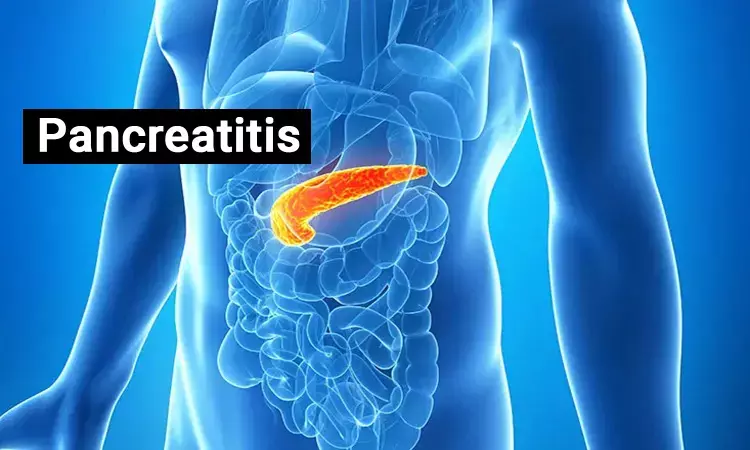- Home
- Medical news & Guidelines
- Anesthesiology
- Cardiology and CTVS
- Critical Care
- Dentistry
- Dermatology
- Diabetes and Endocrinology
- ENT
- Gastroenterology
- Medicine
- Nephrology
- Neurology
- Obstretics-Gynaecology
- Oncology
- Ophthalmology
- Orthopaedics
- Pediatrics-Neonatology
- Psychiatry
- Pulmonology
- Radiology
- Surgery
- Urology
- Laboratory Medicine
- Diet
- Nursing
- Paramedical
- Physiotherapy
- Health news
- Fact Check
- Bone Health Fact Check
- Brain Health Fact Check
- Cancer Related Fact Check
- Child Care Fact Check
- Dental and oral health fact check
- Diabetes and metabolic health fact check
- Diet and Nutrition Fact Check
- Eye and ENT Care Fact Check
- Fitness fact check
- Gut health fact check
- Heart health fact check
- Kidney health fact check
- Medical education fact check
- Men's health fact check
- Respiratory fact check
- Skin and hair care fact check
- Vaccine and Immunization fact check
- Women's health fact check
- AYUSH
- State News
- Andaman and Nicobar Islands
- Andhra Pradesh
- Arunachal Pradesh
- Assam
- Bihar
- Chandigarh
- Chattisgarh
- Dadra and Nagar Haveli
- Daman and Diu
- Delhi
- Goa
- Gujarat
- Haryana
- Himachal Pradesh
- Jammu & Kashmir
- Jharkhand
- Karnataka
- Kerala
- Ladakh
- Lakshadweep
- Madhya Pradesh
- Maharashtra
- Manipur
- Meghalaya
- Mizoram
- Nagaland
- Odisha
- Puducherry
- Punjab
- Rajasthan
- Sikkim
- Tamil Nadu
- Telangana
- Tripura
- Uttar Pradesh
- Uttrakhand
- West Bengal
- Medical Education
- Industry
Self-expandable metal stents effectively manages strictures in chronic pancreatitis: Study

China: The use of fully-covered self-expandable metal stents (FCSEMSs) may help in the effective management of main pancreatic duct strictures (MPDS) caused by chronic pancreatitis (CP), suggests a recent study in the Journal of Gastroenterology and Hepatology.
MPDS in the setting of chronic pancreatitis (CP) occurs in up to 47% of patients, resulting in increased pressure within the pancreatic ductal system and stubborn pain. Although the strictures can be treated by endoscopic insertion of a single plastic stent (PS) and surgery. However, the use of the two methods is limited by various drawbacks including failure to obtain permanent MPDS dilation and the high rate of stricture recurrence.
FCSEMS have recently been used in CP patients with MPDS and are considered a promising alternative treatment.
Ting‐Ting Li, Hospital of Sichuan University, Chengdu, China, and colleagues investigated stricture resolution and recurrence rates of FCSEMS placement in patients with symptomatic CP complicated with MPDS.
The researchers searched the online databases up to December 2019 to identify eligible studies. A meta‐analysis of stricture resolution and recurrence rates was carried out using R. The crude rate of adverse events related to stent therapy was also calculated. A total of 10 studies involving 163 patients were included.
Key findings of the study include:
- The weighted pooled rate of MPDS resolution was 93% with substantial heterogeneity (I 2 = 63%).
- Duration of stent placement more than 3 months did not result in a significantly higher resolution rate than that of 3 months or less (93% vs 93%).
- The weighted pooled rate of stricture recurrence was 5%.
- The stricture recurrence rate for patients with duration of stent placement more than 3 months (3%) was lower than that in patients with 3 months or less of stent placement (7%), but not significantly.
- The overall rate of adverse events related to stent therapy was 34.9%, and spontaneous stent migration occurred in 14.1% of patients.
"The use of FCSEMSs appears to be effective and safe in the management of MPDS caused by symptomatic CP," concluded the authors.
The study, "Efficacy of fully covered self‐expandable metal stents for the management of pancreatic duct strictures in chronic pancreatitis: A systematic review and meta‐analysis," is published in the Journal of Gastroenterology and Hepatology.
Dr Kamal Kant Kohli-MBBS, DTCD- a chest specialist with more than 30 years of practice and a flair for writing clinical articles, Dr Kamal Kant Kohli joined Medical Dialogues as a Chief Editor of Medical News. Besides writing articles, as an editor, he proofreads and verifies all the medical content published on Medical Dialogues including those coming from journals, studies,medical conferences,guidelines etc. Email: drkohli@medicaldialogues.in. Contact no. 011-43720751


